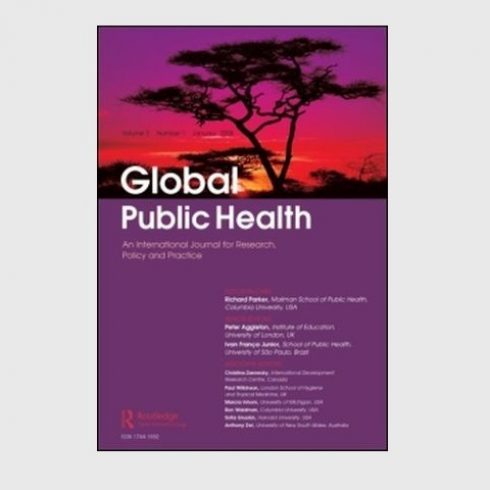Bringing the state into the clinic?
Incorporating the rapid diagnostic test for malaria into routine practice in Tanzanian primary healthcare facilities
Eleanor Hutchinson et al.
Global Public Health 2015

Abstract
The roles that rapid, point-of-care tests will play in healthcare in low-income settings are likely to expand over the coming years. Yet, very little is known about how they are incorporated into practice, and what it means to use and rely upon them. This paper focuses on the rapid diagnostic test for malaria (mRDT), examining its introduction into low-level public health facilities in Tanzania within an intervention to improve the targeting of costly malaria medication. We interviewed 26 health workers to explore how a participatory training programme, mobile phone messages, posters and leaflets shaped the use and interpretation of the test. Drawing on notions of biopolitics, this paper examines how technologies of the self and mechanisms of surveillance bolstered the role mRDT in clinical decision-making. It shows how the significance of the test interacted with local knowledge, the availability of other medication, and local understandings of good clinical practice. Our findings suggest that in a context in which care is reduced to the provision of medicines, strict adherence to mRDT results may be underpinned by increasing the use of other pharmaceuticals or may leave health workers with patients for whom they are unable to provide care.
 Share
Share






Commentary
The latest commentary on the use of antimicrobials in society.
Welcome to the AMIS Hub!
The story of ‘How do we get patients to stop demanding antibiotics?' to where we are now.
Sustainable aquaculture in Bangladesh
Rather than asking how antibiotics enable livelihoods in situations of increasing precarity, our research asks whether it is possible to...
Submissions to the AMIS Hub
Are you a social scientist who is working in antimicrobial resistance (AMR)?